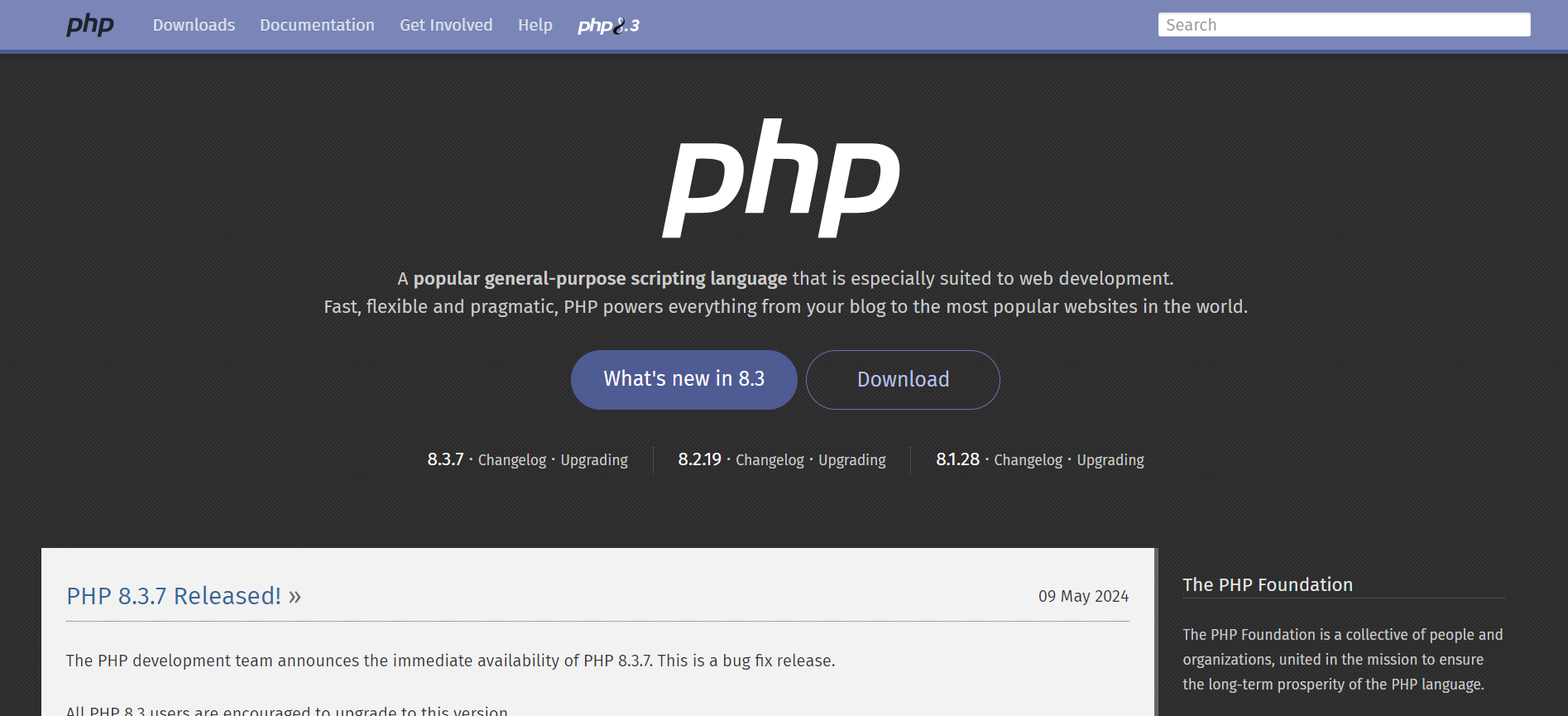PHP: Hypertext Preprocessor
PHP, which stands for Hypertext Preprocessor, is a server-side scripting language designed for web development. Created by Rasmus Lerdorf in 1994, PHP has evolved into one of the most widely used languages for building dynamic web applications.
Key Features:
- Simplicity: PHP syntax is straightforward and easy to learn, making it accessible to beginners and seasoned developers alike.
- Flexibility: PHP runs on various platforms (Windows, Linux, Unix, macOS) and supports numerous databases, including MySQL, PostgreSQL, and SQLite.
- Interactivity: PHP enables the creation of dynamic web pages, allowing users to interact with content in real-time through forms, sessions, and cookies.
- Integration: PHP seamlessly integrates with HTML, CSS, JavaScript, and other web technologies, enabling developers to create robust and interactive web applications.
Common Use Cases:
- Content Management Systems (CMS): PHP powers many popular CMS platforms like WordPress, Drupal, and Joomla, allowing users to create, manage, and publish web content efficiently.
- E-commerce Websites: PHP is widely used for developing online stores and e-commerce platforms, providing features such as product catalogs, shopping carts, and secure payment gateways.
- Web Applications: PHP is ideal for building web-based applications, including social networks, forums, and enterprise solutions, due to its scalability and flexibility.
Security Considerations:
While PHP offers built-in security features, developers must implement best practices to prevent common vulnerabilities such as SQL injection, cross-site scripting (XSS), and session hijacking. Proper input validation, secure coding practices, and regular updates help mitigate security risks in PHP applications.
Community and Resources:
PHP boasts a vibrant community of developers who contribute to its growth and development. Comprehensive documentation, tutorials, and online forums provide valuable resources for learning PHP and solving coding challenges.
In conclusion, PHP remains a popular choice for web development due to its simplicity, flexibility, and extensive ecosystem of tools and resources. Whether you’re building a personal blog, a corporate website, or a complex web application, PHP offers the versatility and scalability to meet your needs.
Download the notes by clicking on the link below :-



